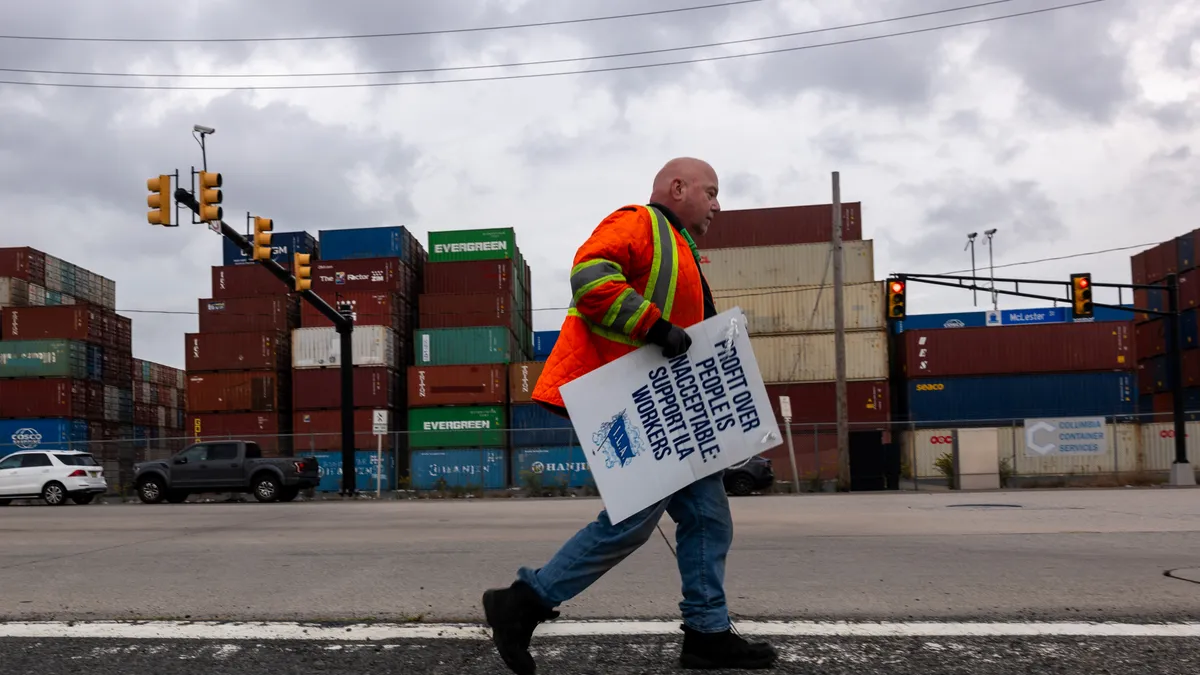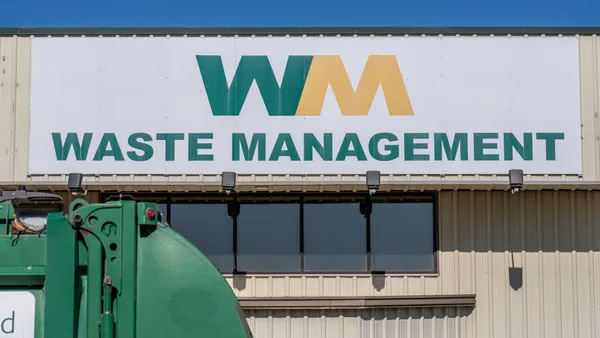Dive Brief:
- A three-day strike of the International Longshoremen’s Association at East and Gulf Coast ports in the U.S. ended with a tentative agreement on Thursday. Recycled material exporters join others’ desires to swiftly resolve backlogs as ports reopen.
- A coalition of hundreds of industry groups, including the the Recycled Materials Association, American Forest & Paper Association, Glass Packaging Institute and Can Manufacturers Institute, called for a quick resolution to the labor dispute between ILA and United States Maritime Alliance.
- About 18 million metric tons of recycled materials — roughly half of all U.S. recycled material exports — were shipped through the affected ports last year, according to ReMA. It estimates that for each day of port closures, it could take up to six days to fully clear shipping backlogs.
Dive Insight:
The strike’s tentative resolution has averted what many industries expected could be a major blow to the U.S. economy. The recycling industry had been particularly worried about the East and Gulf Coast ports because of their strategic location for exports to places such as Europe and Asia.
The three-day strike began on Tuesday and shut down operations at numerous ports. Negotiations had stalled due to automation and wage concerns. The groups have agreed to extend their master contract until Jan. 15, 2025.
The main recycled commodities leaving the affected ports include ferrous scrap bound for Turkey, India and Europe, as well as recycled paper headed to countries like Thailand, Malaysia and Indonesia, said Joe Pickard, ReMA’s chief economist.
Meanwhile, recycled plastic export volumes from those ports are “not nearly as significant as they've been in years past,” he said, because of export restrictions from China and elsewhere.
The U.S. does still import some plastic scrap such as PET flake, which recently has experienced strong demand, said Emily Friedman, recycled plastics senior editor at the Independent Commodity Intelligence Services, in an email.
Friedman noted that a prolonged strike could have had a negative effect on pricing for recycled resins such as recycled PE. If virgin plastic meant to be exported had been unable to leave the U.S., it could have flooded the domestic market and “exerted tremendous downwards pressure on the cost-sensitive R-PE markets.”
Though analysts expect some short-term shipping delays and cancellations as the effects of the strike are resolved, it’s unclear what the longer-term impact will be.
Some recyclers have already incurred higher costs for shipping and logistics because they made other arrangements to move the material across the country to West Coast ports, either by truck or rail, Pickard said.
“If it costs more to ship, then they need to adjust their pricing for when recyclers are buying the material to begin with. The price of everything [goes] up. It can have a depressing impact on the marketplace when our export material becomes more expensive to ship,” he said.
On the import side, Friedman said some shipping companies had already canceled certain sailings to East Coast ports in response to news of the strike, while some buyers canceled previous orders.
Global shipping factors are also at play, Pickard said. “The shipping lane situation was already challenging to begin with before the port strike,” he said, noting that traffic in the Panama Canal, a major route for material headed to Asia from East Coast ports, is experiencing slowdowns. Meanwhile, ongoing conflicts in the Middle East have impacted shipping traffic through the Red Sea, another major shipping route.
Analysts and industry groups are keeping an eye on the next steps of the tentative agreement between the two labor groups, which are expected to continue negotiations to iron out outstanding issues. Some industry players worry that negotiations could break down, leading to another strike next year.











